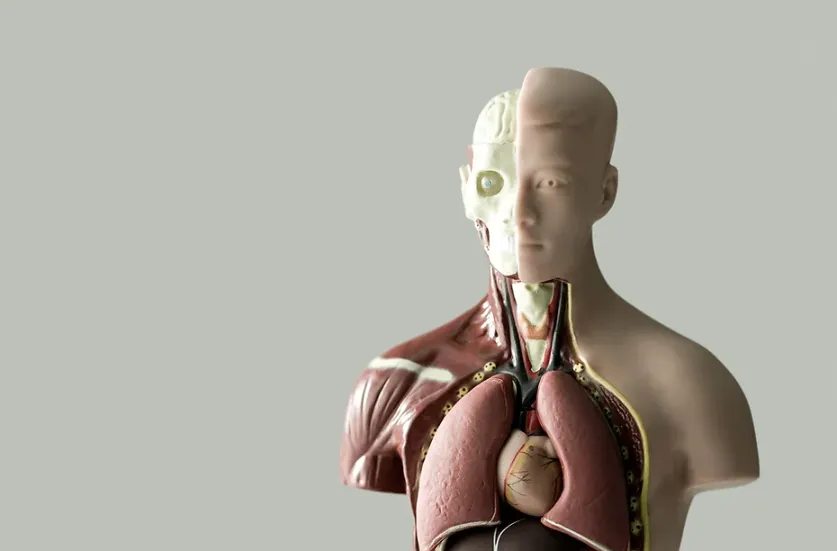Why Functional Nutrition ?
We look for root causes of chronic symptoms that may be caused by dysfunction of metabolic pathways,
Your body relies on innumerable metabolic reactions 24/7 to function, which use amino acids, vitamins and minerals that you consume through nutrition. Similar to a puzzle with a missing piece, sometimes your diet is missing a specific nutrient to complete these vital metabolic reactions!
Functional Nutrition looks at how your metabolism and various organ systems are functioning in relationship to one another (hence the name). The body can be functioning optimally, insufficiently or can be in a nutritionally deficiency state. You can still experience symptoms in an insufficient state without being officially “deficient” in a nutrient. We can catch negative trends before they progress to a disease state! We also look for root causes of chronic symptoms that may be caused by dysfunction of metabolic pathways, which can include toxins, gut problems, nutrient deficiencies, stress, etc.


We look at the body as an integrated system that works synergistically as opposed to compartmentalizing the organ systems. For instance, normally you might be referred to practitioners of various specialties for certain types of symptoms (immunologist, allergist, endocrinologists, gastroenterologists, etc.) to assess dysfunction. However, sometimes a gut issue can cause cognitive issues, adrenal issues, allergies or immune issues. My clients have often left some of these specialists frustrated and without answers beyond symptom management because the root cause was not discovered. Your allergist may not have realized your gut damage was causing your allergic-type reactions, or your immunologist may not have assessed diet or nutrients as a reason for immune dysfunction.*
*See question below on differences between doctors and clinical nutritionists specializing in functional nutrition.
Clinical nutrition is more than meal plans and weight loss! We spend 60-90 minutes in an initial consult to thoroughly evaluate a client’s biochemistry via laboratory results, health history, family history, current diet, symptoms and sometimes genetic profile. Then, make recommendations for functional foods or nutraceuticals (therapeutic nutritional supplements) as needed to help support them. Over time, clients experience a significant decrease (if not a complete reversal) of symptoms, often without any medications. Our goal is always to get the client back to their optimal state of health with the fewest side effects possible.

What is the difference between a clinical nutritionist and a doctor?


Keep in mind, physicians are incredibly smart! They are very highly educated, but typically do not have advanced training in nutrition (read article). Although all docs are different and many are undergoing more nutritional training, more and more doctors are recognizing the importance of nutrition for their patients and are referring out to nutritionists to work alongside them. Our clients report that the support of a clinical nutritionist has made a huge difference as part of their care team. At the end of the day, if your instinct says nutritional help may be beneficial, it may be!
Do you order lab work?
Yes we do, but not to diagnose, treat or cure any diseases; we only use them to assess nutritional status. Some non-specialty tests can be ordered by your doctor if you prefer, but we can order them as well. We do not bill insurance or submit to insurance companies. We will provide a receipt if requested for clients to submit.
What kind of lab work do you order?
We only order labs after I assess that more information is needed.
Traditional blood labs: Complete Blood Count, Comprehensive Metabolic Panels, Iron, Vitamin D, Endocrine, Cholesterol, etc.
- Organic Acids
- Amino Acids
- Heavy Metals
- Hormone, Hormone Precursors
- Allergy/Food Sensitivity Assessments
- Hair Nutrients
- Fatty Acids
- DNA Comprehensive Stool Analysis
- Genetic Assessments
Labs can be extraordinarily helpful for discovering root causes.

What is the difference between a clinical nutritionist and other nutritionists?
Functional Nutrition Articles

3 Reasons You Need Functional Nutrition
Ten years ago I was fatigued, depressed, anxious, gaining weight (despite eating less calories, exercising, and eating low foods), in pain and had terrible GI

5 Reasons to see a Functional Clinical Nutritionist
1. Food is EVERYTHING We don’t just eat because we are hungry we eat for fuel. Sure, that’s fuel to do physical work like gas